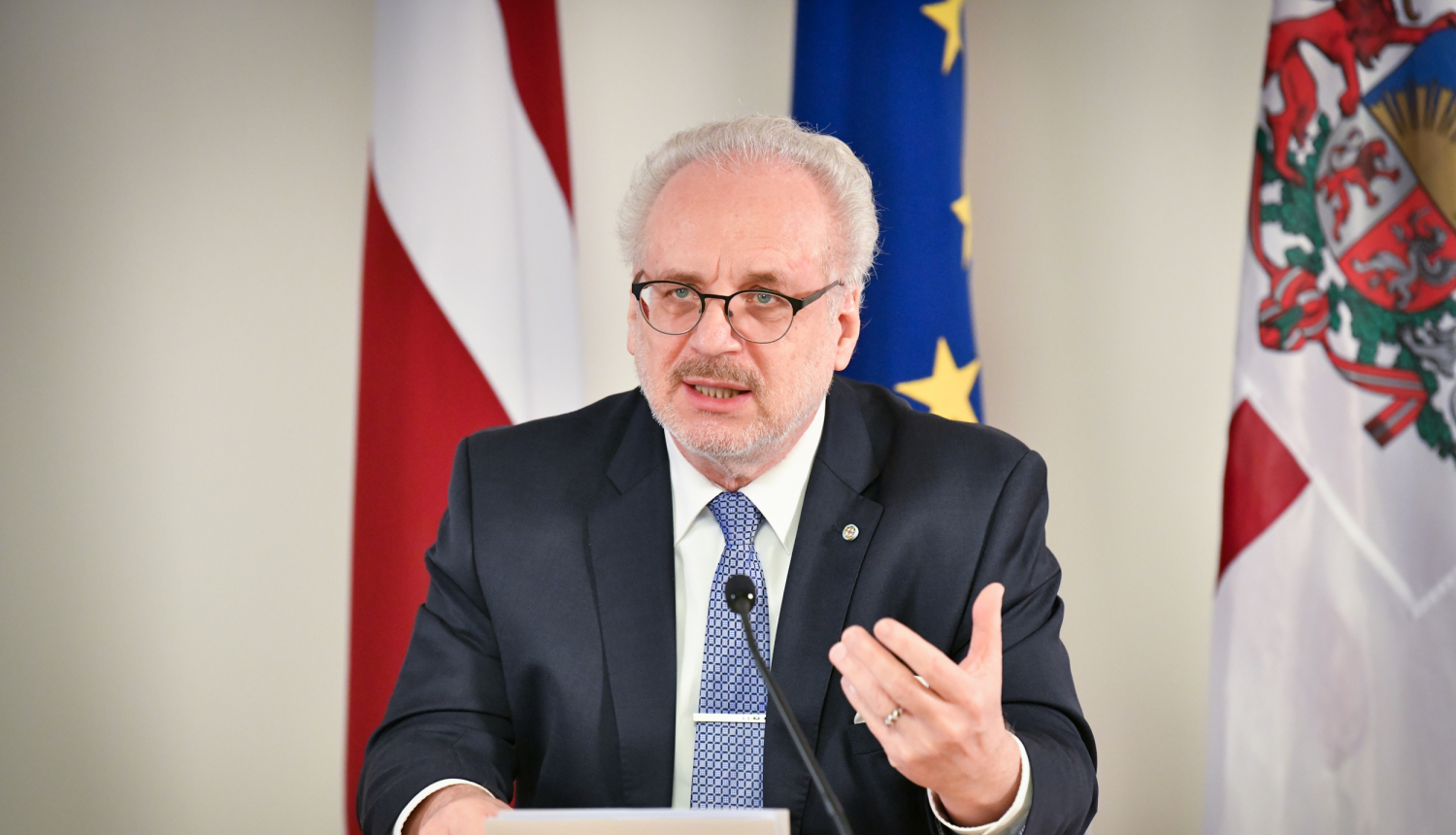I
Dear members and staff of the Latvian Free Trade Union Confederation, participants and organisers of the 9th Congress,
I am truly honoured to stand in front of you today and congratulate you on the opening of the 9th Congress, which is your highest decision making body.
Since previous congress five years ago, Latvia has celebrated the centenary of its statehood and 15 years since Latvia’s accession to the European Union and NATO.
In these five years Latvian economy continued to grow, and we all have become more prosperous. The average wage in Latvia has risen by 44 %, while unemployment has decreased by 37.5 %.
II
Yet right now we are going through one of the toughest periods in the modern history of independent Latvia. Covid-19 pandemic has impacted every aspect of our daily life and the way we work. Some sectors and professions have found themselves in a very dire situation because of Covid. Energy market volatility and price fluctuations raise many concerns. We are also facing challenges on our external border. Globalisation, technological advancements and climate change shape the face of things to come.
These changes and challenges inevitably affect how we as a society live and may lead to adverse consequences on personal level, including rising inequality. People are understandably concerned about the prospects of their family and themselves.
III
Latvia will receive a substantial financial injection from European Recovery and Resilience Facility in the next years. This funding is intended for specific goals, such as climate policy and European Green Deal activities, digital transformation, reduction of social inequality, health, promotion of economic transformation and strengthening of the rule of law.
Targeted project-based investments must foster reforms in aforementioned areas. Reforms that shall boost the productivity of our economy and make it more competitive and sustainable.
IV
Close coordination and joint effort is essential in achieving these important goals. As I have clearly underlined on other occasions, we need to modernise our public administration and improve delivery of horizontal policies.
That is why I have prepared a draft law, which is currently in Saeima, establishing the position of state minister. Such state ministers would be politically accountable for key horizontal policies.
For example, we are one of the few European countries without government minister or state minister politically responsible for digital transformation. Hundreds of millions of digital transformation euros will flow from European Union structural funds into Latvia in the coming years. Without common centralised horizontal policy coordination these funds might miss the targets and miss out on potential returns. It is one of Latvia’s governance challenges. We are lagging behind our Baltic neighbours, and our governance is not as flexible and progressive as it needs to be in this day and age.
V
Europe is transforming its economy and moving away from ‘polluting’ economy into green economy. This will help avoid climate catastrophe and waste of depleting natural resources in the coming decades.
This requires not only a change of behaviour on the part of consumers, but also a new way we work and organise the economy.
VI
Many of these changes are linked to working hours, workplace, flexicurity. Some employers might find it hard to adjust. They might be tempted to circumvent some of the employee rights that trade unions have fought for. Employees might be asked to do more without increasing their pay or compensation in some cases.
One of such examples is quasi self-employment where employees are forced to take care of their own social guarantees and protection instead of the employer taking care of them.
VII
Continuous education will become one of the main priorities in near future. Skills and competencies we have once learned at school or university quickly become outdated due to rapid development of technologies. Further upskilling and professional development have become life-long goals.
More progressive countries, such as Finland, are already far ahead of others in terms of further learning programmes. That has major influence on how competitive economy is internationally. I hope Latvia will not be lagging behind others as it has in so many other areas. Trade unions should also be closely involved in promoting continuous education.
VIII
I think social responsibility is and must remain a crucial ingredient of economic transformation in the next decades. Social dimension, social dialogue and involvement of social partners are the building blocks of a modern and highly competitive economy.
Trade unions also play an important role in economic recovery and reforms.
Latvian Free Trade Union Confederation has always been a strong advocate of employee’s rights and a constructive government partner in developing necessary policies.
Keep up the good work, and I hope you will only get stronger and more powerful in years to come!
I wish you a productive congress and good luck in your future endeavours.
Thank you!




